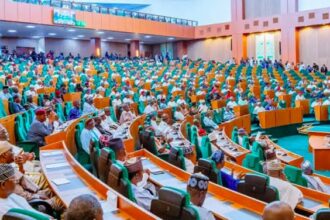
The Federal Government it’s not behind the recent surge in petrol prices.
On Wednesday, October 9, the Nigerian National Petroleum Company Limited (NNPCL) adjusted petrol prices upward, with Abuja seeing a rise from N897 to N1,030 per litre, Lagos from N855 to N998, the North-East to N1,070, other South-West states to N1,025, the South-East to N1,045, and the South-South to N1,075.
The price hike sparked widespread outrage, with many Nigerians urging President Tinubu to intervene.
In a statement to Daily Trust, Minister of Information and National Orientation Mohammed Idris clarified that the government should not be held accountable for the latest petrol price increase.
Idris clarified that the NNPCL’s decision was a response to current energy industry conditions, stressing that it acted independently without federal government instruction. This autonomy stems from the Petroleum Industry Act (PIA), which removed government price controls on petroleum products.
The NNPCL had been absorbing losses by paying price differentials since the subsidy regime ended in May 2023. However, the company has now reached a breaking point and can no longer sustain these losses, prompting the recent price adjustment.
“The differential you’re seeing is a result of different factors. One of them is the crisis in the Middle East. There’s volatility in the market. Therefore, the prices of petroleum products are going up, consistent with what is happening with other operators in the industry globally. Secondly, NNPC cannot continue to absorb these losses for Nigeria because as a limited liability company, it would be operating at a loss“, he said.
The minister appealed to Nigerians to remain patient and understanding with the NNPCL and the government, promising that prices will decrease in the long term. He emphasized that the government’s removal of subsidies will ultimately benefit the country by freeing up funds for critical sectors such as healthcare, education, infrastructure, and security.
By redirecting subsidy savings, the government aims to boost essential services, ensuring Nigerians reap long-term benefits. This strategic allocation of resources will also foster economic growth and development.
Additionally, the minister highlighted the government’s initial investment in Compressed Natural Gas (CNG) as a key measure to mitigate the impact of subsidy removal. As more operators invest in CNG, the benefits will multiply, contributing to a more sustainable energy landscape.
Source: https://www.lindaikejisblog.com/






